High Country locals can't recall a summer this wet
The Australian Alps are one of the wettest places on the Australian mainland south of the tropics, but even they tend to dry out a little in summer, especially compared to winter.
Indeed, the three driest months of the year at Perisher Valley in NSW are December, January and February (albeit with healthy averages of 95.3 mm, 96.1 mm and 73.1 mm respectively).
But this summer, the rain has been relentless, and not just in the high mountains but in nearby towns.
The consistent, often heavy rain has even fallen in towns east of the mountains, which often suffer from the rain shadow effect – where westerly winds drop their load of moisture on the high peaks due to the orographic effect, leaving little left over for areas on the downslope.
That's why scenes like this have been common.
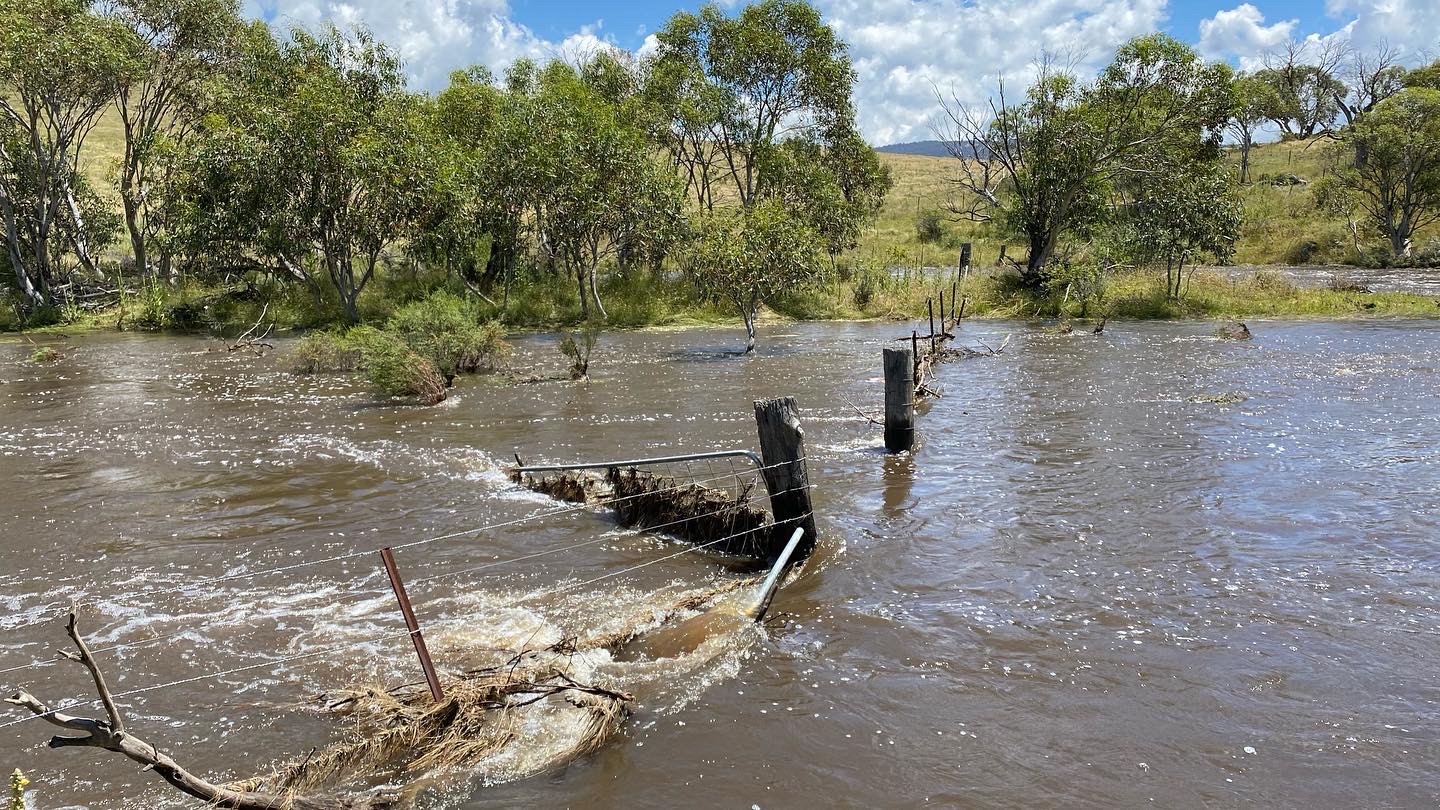
Image: It's usually not much more than a trickle. Source: Steve Smith.
The picture above was taken in the rural locality of Moonbah, about 15 minutes south of Jindabyne in NSW, when the Mowamba River flooded in late December.
There's no official weather station nearby (so we can't tell you exactly how much rain has fallen) but local resident Steve Smith, who shared the pic with Weatherzone, told us that the river at his property has flooded three times since mid spring – and he usually only sees the river in flood like this once every seven years or so.
He also told us that an 83-year-old neighbour said he's never seen anything like it in 60 years on the same property.
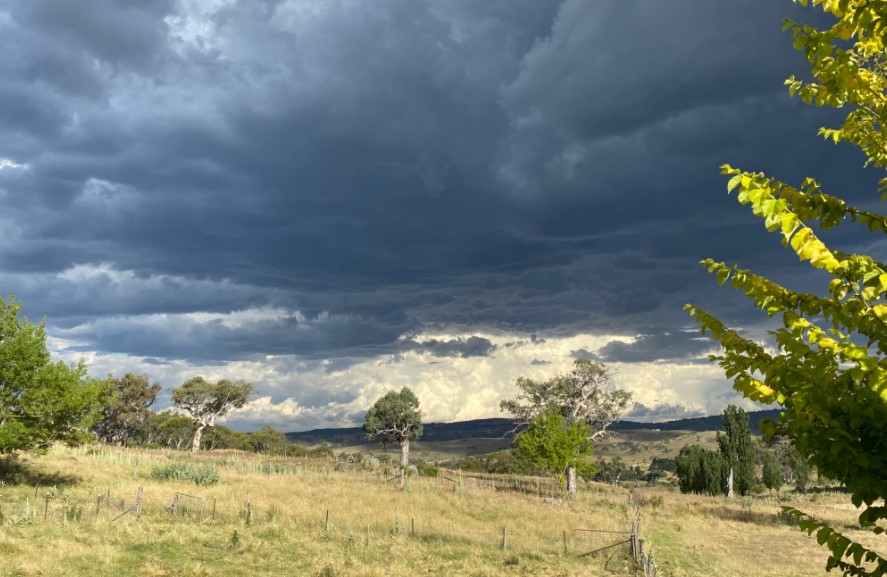
Image: Skies have looked like this over Moonbah (and the rest of the mountains) most days this summer. Source: Steve Smith.
It's also worth noting that Cooma Airport, about an hour east of the NSW ski resorts, had its wettest November on record with 183.8 mm. That backs up the report from our man in Moonbah about the fact that this wet summer was preceded by an exceptionally wet spring.
Meanwhile, the Mowamba River is far from the only High Country stream to break its banks repeatedly in recent months. In December we brought you the story of flash flooding in Thredbo. It happened again in early January and locals report numerous small bridges on walking trails completely destroyed.
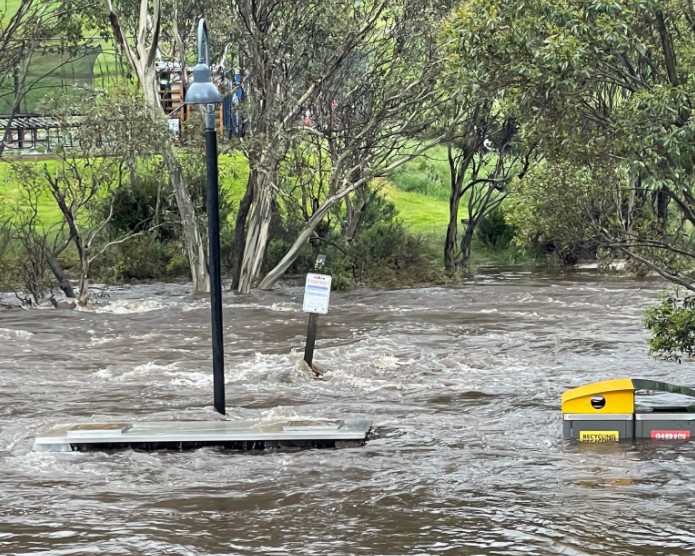
Image: On the positive side, the Thredbo River stopped just short of "binundation". Source: Susie Diver.
Summer mountain biking and hiking season is now almost as busy as winter in Thredbo, so it's yet another economic disruption to a region still suffering from back-to-back Covid-disrupted snow seasons.
At the rural locality of Hill Top, just east of Jindabyne, the paddocks simply refuse to dry out.
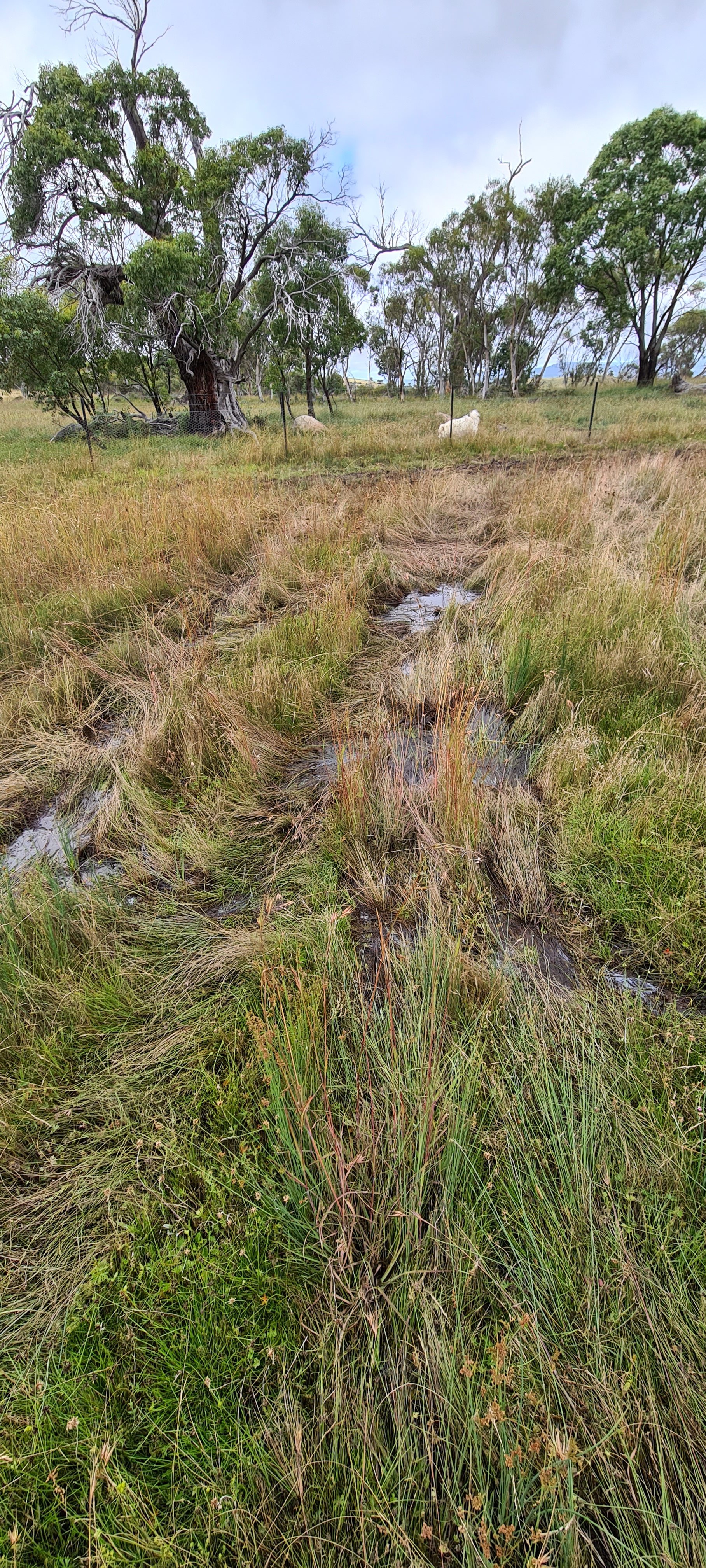
Image: Everyone's boots are soggy in the mountains. Source: Phil Richmond.
"It's so wet that any new rain just doesn't penetrate," local landholder Phil Richmond told Weatherzone.
"I was speaking to a friend who was born on the land up here and he said he's seen a few good seasons but this is exceptional. Another friend said the ground is so soaked that the river comes straight up with even a light shower."
For farmers, all this creates problems. With paddocks so wet, little work can be done, while the clover is so thick that cattle are bloating. That said, they'd all take these problems over the terrible drought and fires of 2019 and early 2020.
Over the border in the Victorian Alps, it's been just as wet. Take a look at these figures for north-east Victoria (ignoring the data for Falls Creek, where the weather station appears to be malfunctioning).
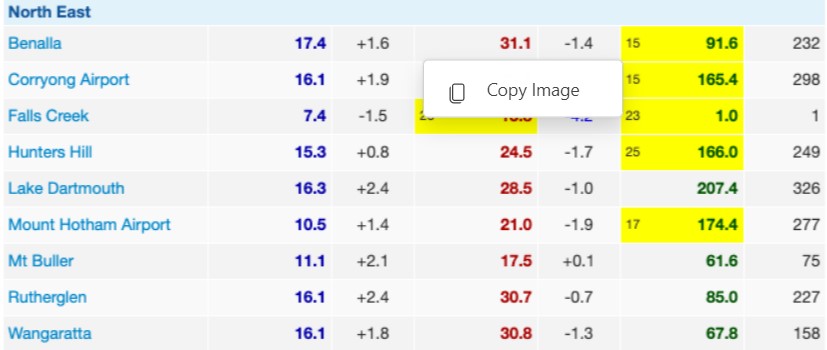
The last two columns are the ones of interest. They show the rain recorded this January to date, and the percentage above the mean.
In other words, Lake Dartmouth (which dams the Mitta Mitta River, which we wrote about in this flooding story on January 6) has already recorded more than triple its monthly average rainfall – and we're only two thirds of the way through January.
With so much moisture in the mountains, there will be inevitably be some people asking whether this might translate to a bumper snow season later this year.
The short answer is that there's little or no correlation between the type of weather that has brought this summer's rain and the sort of weather patterns that tend to bring snow in winter. But it doesn't hurt to hope!